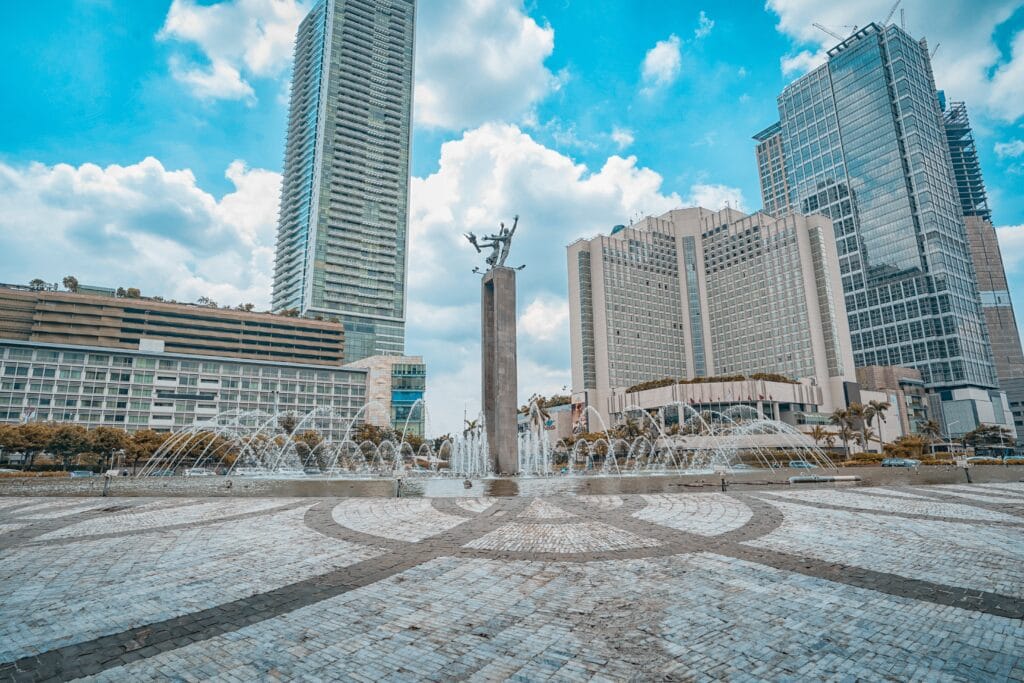Ready to settle in between oceans: the Indian and Pacific? Alongside the idyllic island of Bali, lush jungles, volcanic mountains, and stunning beaches await you in Indonesia. Thousands of expatriates choose Indonesia to start a new life with their families, as a couple or on their own, to combine new career opportunities with an exquisite environment.
As you plan your move to this extraordinary archipelago, your thoughts probably turn to health insurance. How does the local health system work? Foyer Global Health gives you some insight into the local system so you can plan your health insurance before you move.
About the Indonesian health system



Since the launch of the Jaminan Kesehata Nasional (JKN) in 2014, a compulsory universal health insurance scheme for Indonesians and expatriates, some progress has been made in terms of accessibility of basic healthcare and medical infrastructure. This programme allows residents to be covered for services provided by health providers who have joined the scheme.
However, despite this reform, the public health system still suffers from a severe lack of resources, medical infrastructure and qualified medical staff, resulting in overcrowding in public hospitals and a shortage of health professionals. This is particularly true outside of major tourist hubs such as Bali and Jakarta on the island of Java. In the world’s largest archipelago, not all islands are equipped at the same level.
What health facilities exist for expatriates ?
The Indonesian health system is based on public and private medical structures. There are about 20 institutions country-wide accredited by the Joint Commission International, and the vast majority of them operate in the private sector.
In the country’s major cities such as Jakarta and Bali, you can find public hospitals and health centres. In more remote areas, at the sub-district level, residents are provided healthcare in ‘Puskesmas’, community health centres.
Depending on the region, the quality of care, infrastructure and management in the public sector is not consistent.
Expatriates most often turn to private clinics for primary care as these centres offer a wide range of medical services (general or specialised medicine, laboratories, dental care, radiology…). They also use private hospitals equipped with high-quality equipment.
These private medical institutions are more organised, with modern facilities, and offer a higher quality of care than in the public sector. Their health staff is often multilingual. Among the best private facilities are Medistra Hospital in Jakarta and Siloam International Hospitals, the largest private healthcare providers in the country.
In cases of serious illnesses and life-threatening emergencies where specialists and first-rate medical equipment are needed, it is highly recommended to seek treatment abroad in neighbouring countries such as Singapore or Australia, even if the prices for health services are higher there.
Cultural differences
In most Western countries, patients are accustomed to asking their healthcare provider many questions whenever they feel the need to do so, whereas in Indonesia it is not customary to question the doctor, who may interpret this as questioning his or her expertise and diagnosis. This does not mean that you should refrain from asking any questions at all if you are in doubt… That is why it is useful to be able to benefit from online medical assistance 24/7, such as Foyer Global Health’s telemedicine services.
What are the health risks in Indonesia?
Although there are a number of health risks in Indonesia, it is quite possible to avoid them by taking a few simple hygiene and protection measures. Avoid drinking tap water and only eat well-cooked food; make sure your vaccinations are up-to-date, especially for polio and hepatitis A; and protect yourself as much as possible from mosquitoes, which carry malaria, dengue and Zika.
International health insurance: the must-have medical coverage for expatriates in Indonesia
If you are planning to move to Indonesia, international health insurance, in line with Indonesian law, is the best option to ensure effective medical coverage. As the Indonesian healthcare system is limited in terms of medical equipment, infrastructure, and services, it is important to seriously consider subscribing to an international insurance policy that covers you abroad, in neighbouring countries and potentially in your home country. In case of emergency, it is also strongly recommended that you choose an insurance policy covering your repatriation/evacuation.
What can you expect from Foyer Global Health?
- An international health insurance tailored to your unique needs; effective medical coverage in Indonesia, your home country and worldwide
- Health coverage for a wide range of medical services in both the public and private sectors, including for Covid-19 related treatments
- 24/7 multilingual medical assistance
- Evacuation and/or repatriation plans in case of medical emergency or major health problems.
Our international health insurance experts are here to guide you! Contact us to find the ideal health insurance solution for your relocation to Indonesia!
